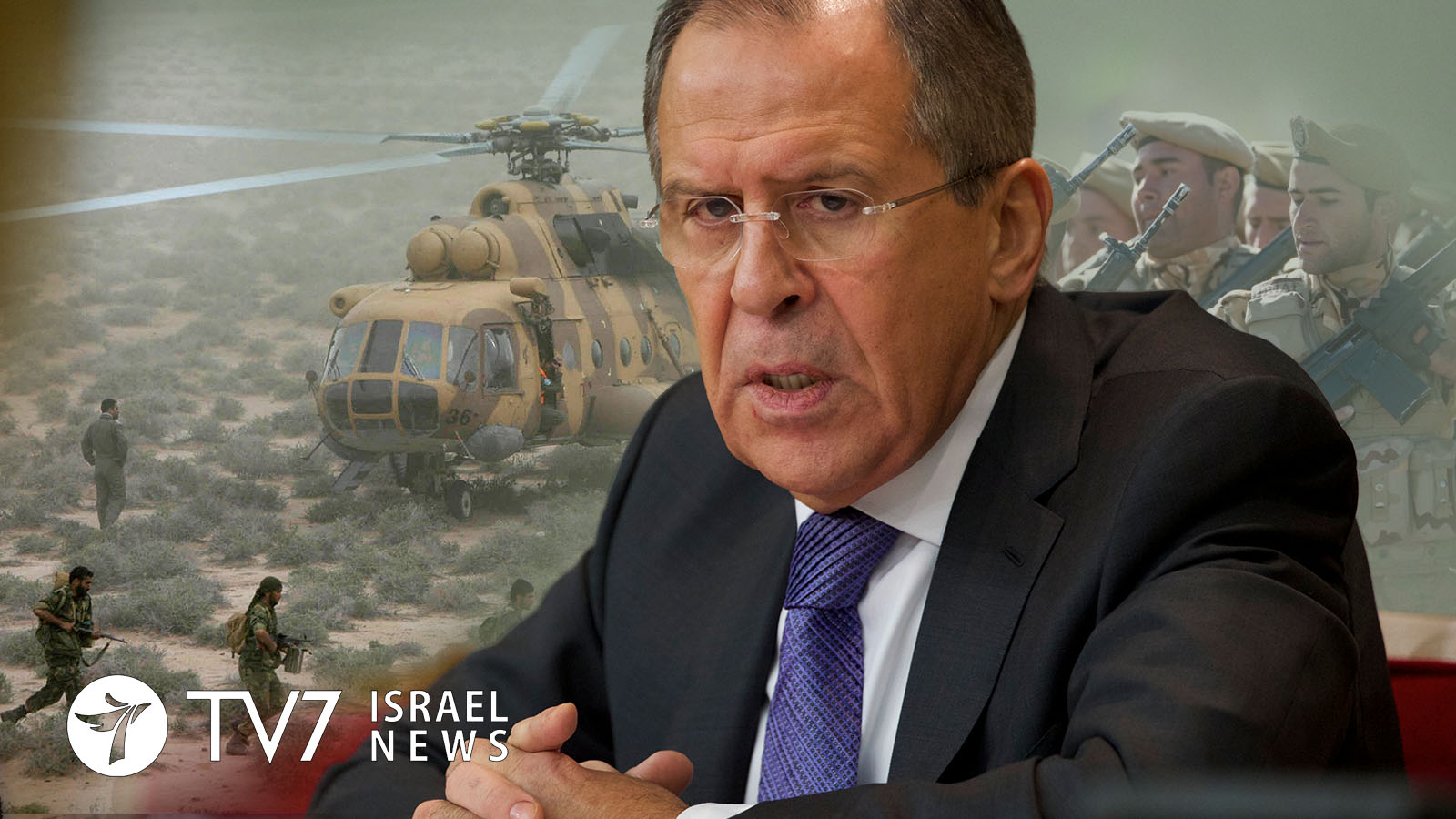Prime Minister Benjamin Netanyahu reiterated last night that Israel would not permit Iran to turn Syria into a base against the Jewish state. In a televised speech that was broadcast to the General Assembly of the Jewish Federations in Los Angeles, Netanyahu warned that Iran wanted a permanent military presence in Syria, on sea, air and land, and that it clearly intended to use Syria as a base from which to destroy Israel. The comments by Prime Minister Netanyahu were followed by a press conference in Moscow, in which Russian Foreign Minister Sergei Lavrov declared that, contrary to Western allegations, the Iranian presence in Syria was legitimate, while emphasizing that Moscow did not promise to withdraw Iranian troops and pro-Iranian militias from Syria in the framework of an emerging permanent status arrangement and cease-fire agreement with the United States. Lavrov said, “You know we haven’t talked to our U.S. colleagues in detail about what’s happening on the entire Syrian territory. We’ve just stated the fact that there is Russian and Iranian legitimate presence on the invitation of the legitimate government (on the Syrian territory) and we have also stated the fact of the illegitimate presence of the coalition created by the United States which is carrying out military actions, including unilateral ones, but first of all it provides support for opposition armed groups on the territory and in the air space of the Syrian Arab Republic,” the Russian top diplomat said.
Following a meeting between US President Donald Trump and his Russian counterpart Vladimir Putin, the two leaders affirmed in a joint statement that an agreement was reached that would lay the ground work for efforts to reignite a political process for Syria, that would bring about an end to the years of conflict, in which monitoring organizations told TV7, “more than a million lives have been lost.” With regard to Israel’s security concerns regarding Iran’s entrenchment in Syria, the agreement states that the deployment of Iranian forces alongside Assad’s army near the Israeli border, will be carried out in two stages. At the first stage: there will be a freeze of the situation, determining that the Iranian forces and pro-Iranian militias will be located at a range of five kilometers from the line of contact between the rebels and the Syrian army, on the Syrian side of the Golan border, and not at a distance of five kilometers from the Israeli border, as initially reported. At the second stage, discussions will commence on the Israeli demand to move these forces to a range of about 40 kilometers from the border line between Syria and Israel. Nevertheless, Russian Foreign Minister Lavrov stressed that the wording of the agreed upon document did not demand a removal of Iranian forces, but rather demanded the departure of non-Syrian military units, while emphasizing that the demand for the departure of pro-Iranian forces from regions within Syria are illegitimate, considering the fact that the Syrian Army itself is considered to be pro-Iranian. He said, “In the context of concrete decisions on how this zone will function and how we should organize it to avoid the repetition of armed clashes, yes, it is written there that the goal – both inside this zone and outside it – is to ensure departure of non-Syrian military units. No one mentioned Iran or pro-Iranian forces. If we talk about pro-Iranian forces, somebody might be tempted to call the entire Syrian army pro-Iranian, and then what – it should surrender? In my opinion it is a wishful thinking,” the Russian top diplomat asserted.
In response to the comments by the Russian top diplomat, Prime Minister Netanyahu’s Bureau in Jerusalem issued a statement, saying, “the prime minister had clarified Israel’s position to its friends in Moscow” and that “Netanyahu had told President Putin that Israel would continue to look out for its security interests in any situation.”
